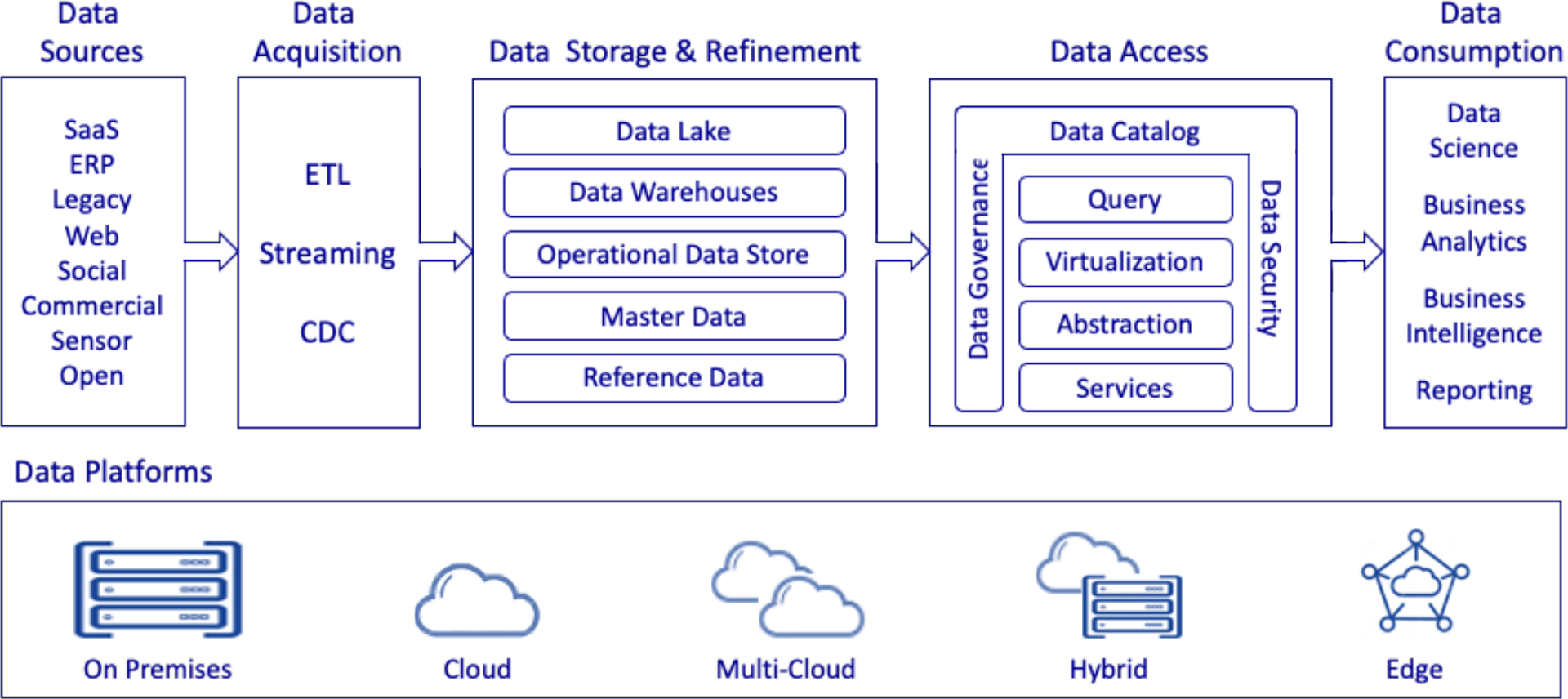Data Governance
Data Quality, Data Virtualization, Data Catalog and Data Lineage
Approaching the subject of Data Governance means adopting solutions that revolve around a modern concept of data governance, which looks at data as the real asset of companies, and aims at its full utilisation in the form of shared knowledge.
We offer Data Governance services to Customers, accompanying the Organization so that data is used effectively, efficiently and transparently, in order to support business activities and the decisions making process.
We follow the methodological principles of Data Governance to ensure accuracy, completeness, reliability and availability of data for its use, while maintaining the security and privacy of information.
We cover all aspects of Data Governance such as Data Quality, Data Virtualization, Data Catalog and Data Lineage using the technological solutions of the most important market leading products.
Our offer pillars: Competence, Methodology, Technology, Data Governance Services
Competence
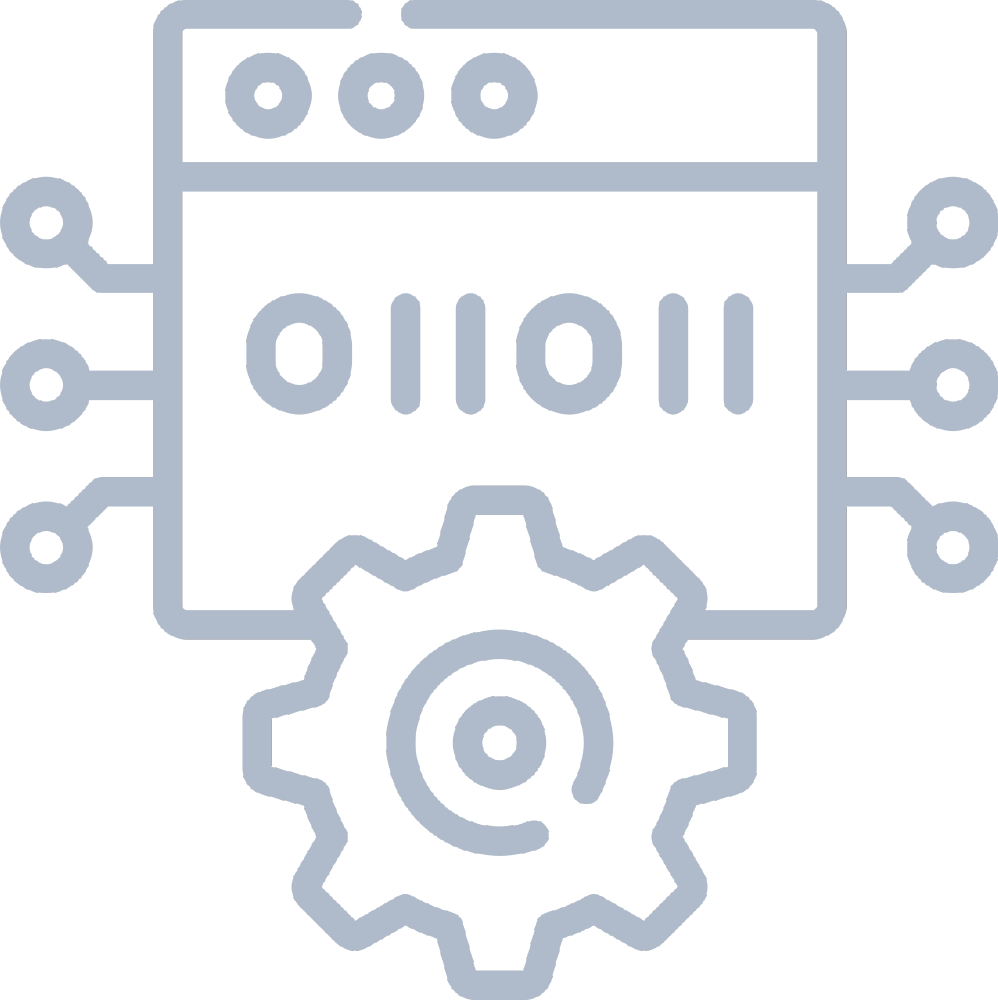
Data Governance
Competence throughout the management cycle of company data able to solve problems of:
- Harvesting
- Modeling
- Lineage
- Impact Analisys
- Data Quality
- Data Profiling
- Semantic Lineage
in different industrial contexts such as IOT, Banking, Automotive, Energy, Public Sector.
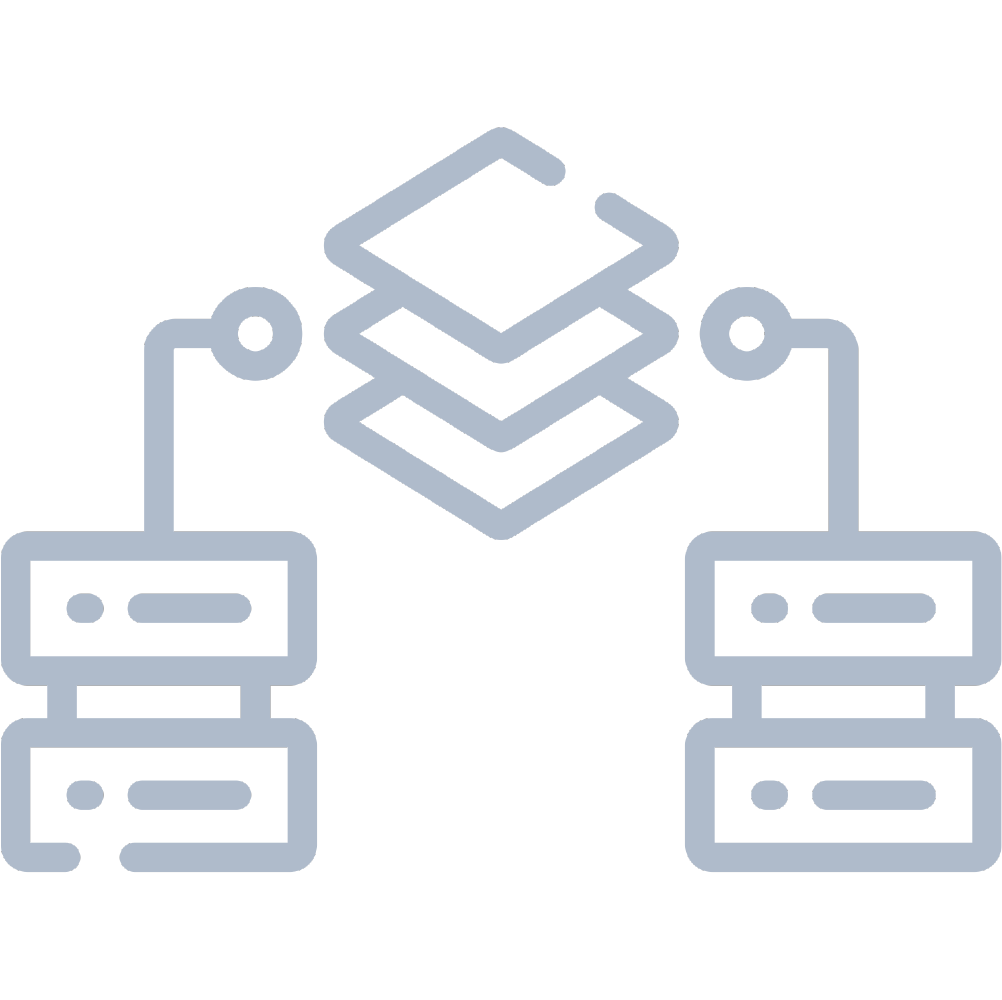
Data Virtualization
Expertise on established Data Virtualization Technologies (Denodo and Tibco) for:
- Integrate and access data from heterogeneous sources.
- Create a semantic layer that creates a unified view of your data, without the need to move or replicate the data.
- Include a data security and governance layer to control data access and ensure regulatory compliance.
- Use a query optimizer to optimize queries and ensure the best possible performance.
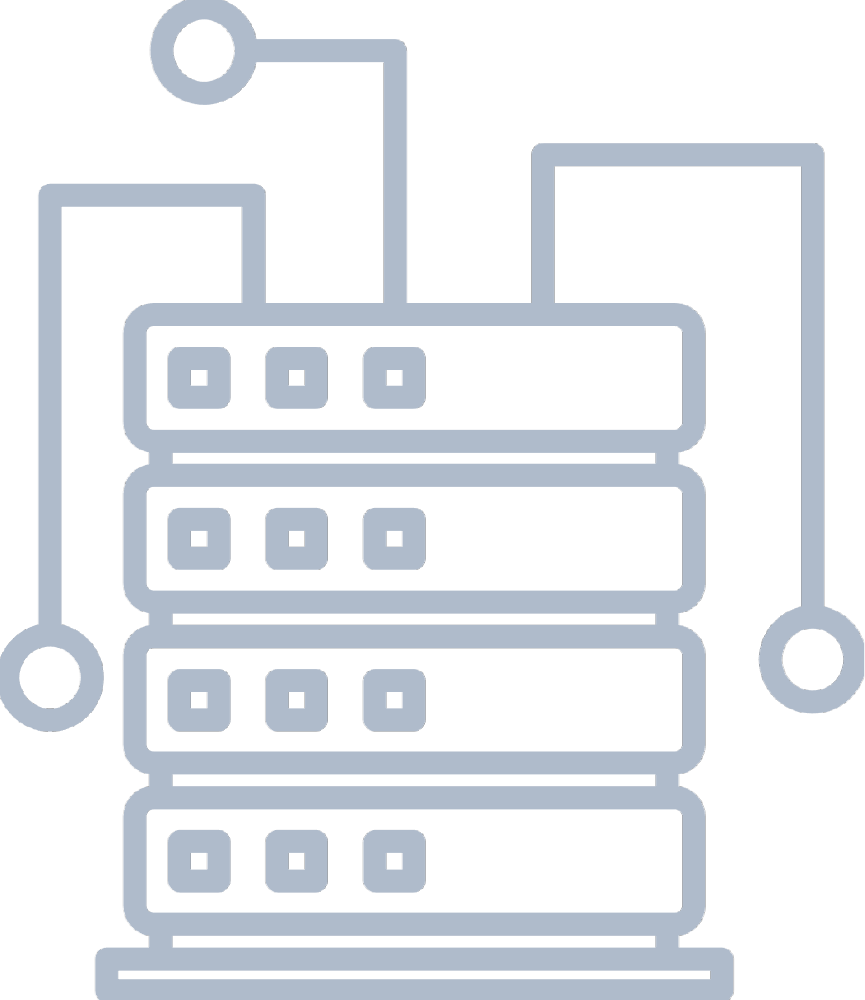
Data Catalog
Expertise in:
- Creation and Management of the Data Catalog, the centralized metadata register that describes information on business data, (details on the data themselves, relationships between data, data properties, data owners …).
- Business Glossary creation and management of relational business glossaries and semantic lineages.
- Monitoring of the architecture of the company BI system.
- Use of market-leading products such as Talend Data Catalog, Irion.
Methodology
Data Governance as a Hub of data management areas of expertise
We follow the most widespread and recognized methodological approach to Data Management developed by the Data Management Association (DAMA) in which Data Governance is central and consists of Strategy, Roles, Policies, Products / Services and Evaluations.
Starting from Data Governance, 9 areas of Knowledge and specific Expertise on data processing radiate from Data Governance.
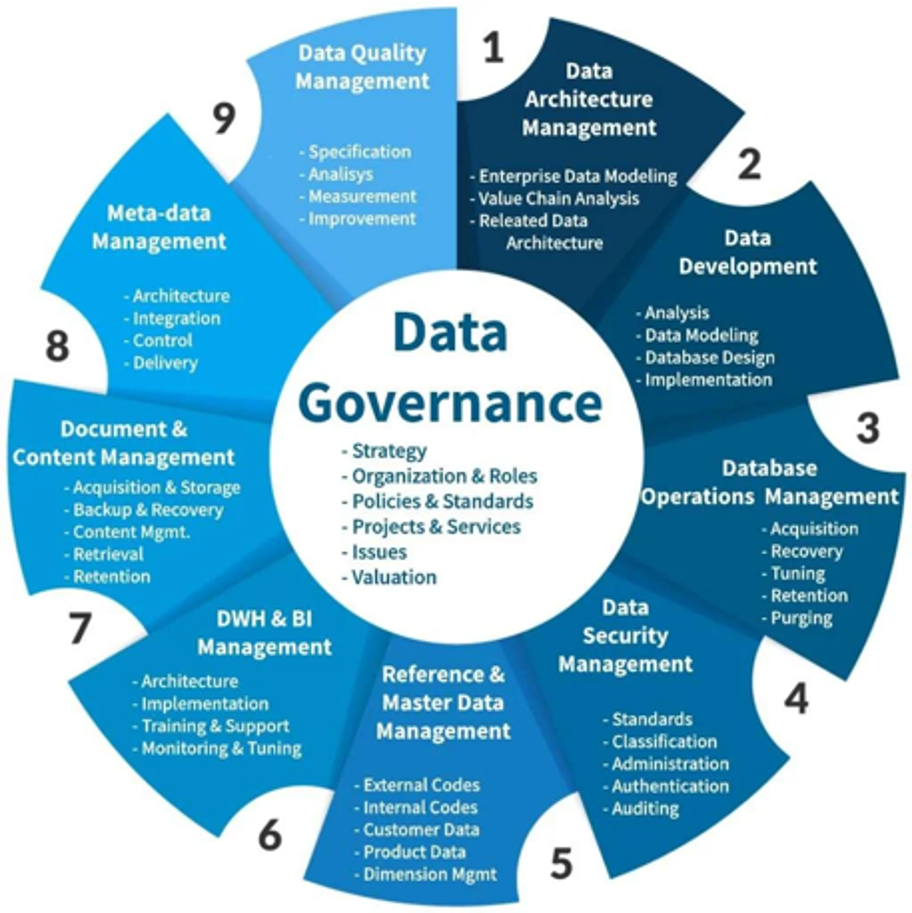
Methodology
The pillars and benefits of Data Governance
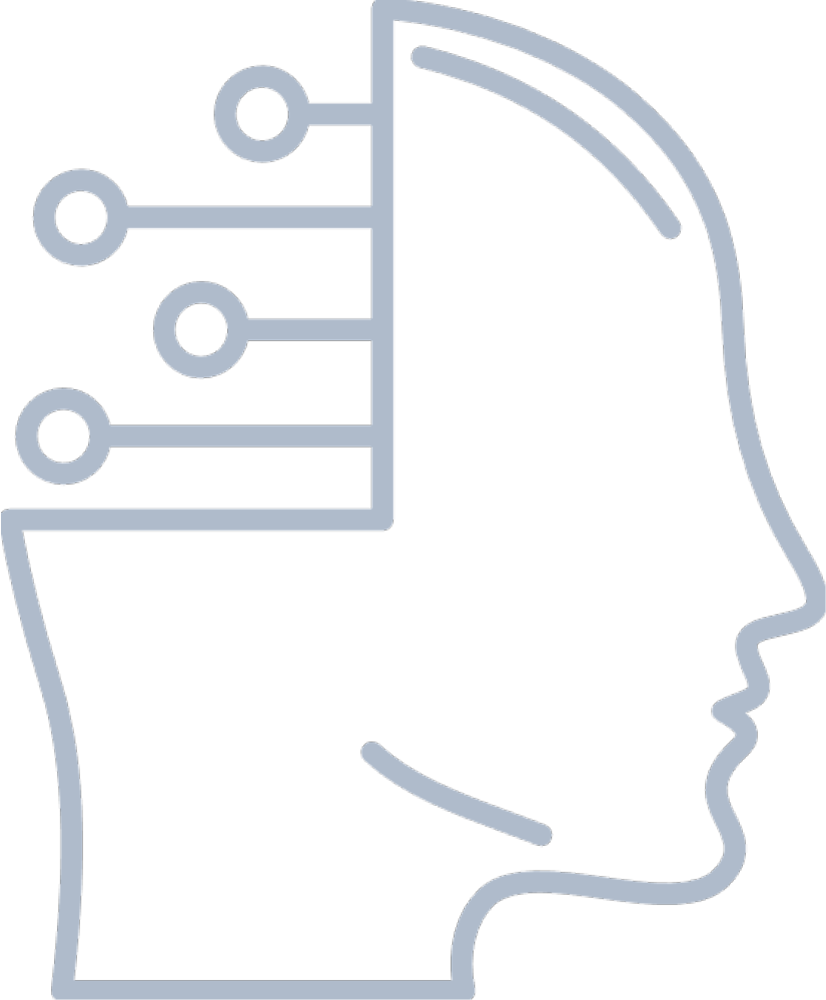
Collaborative Approach
The collaborative approach to Data Governance is based on 5 pillars:
- Data mapping and quality (Data preparation – Data Lineage). for easy and quick access, detect errors and inefficiencies and maintain traceability
- Data Virtualization to build the Data Fabric and streamline access to source data without moving it
- Metadata recognition and management (Data Catalog)
- Data Democratization (Business Dictionary)
- Security by default (security and data protection, protection of intellectual property, comply with legal obligations and GDPR)
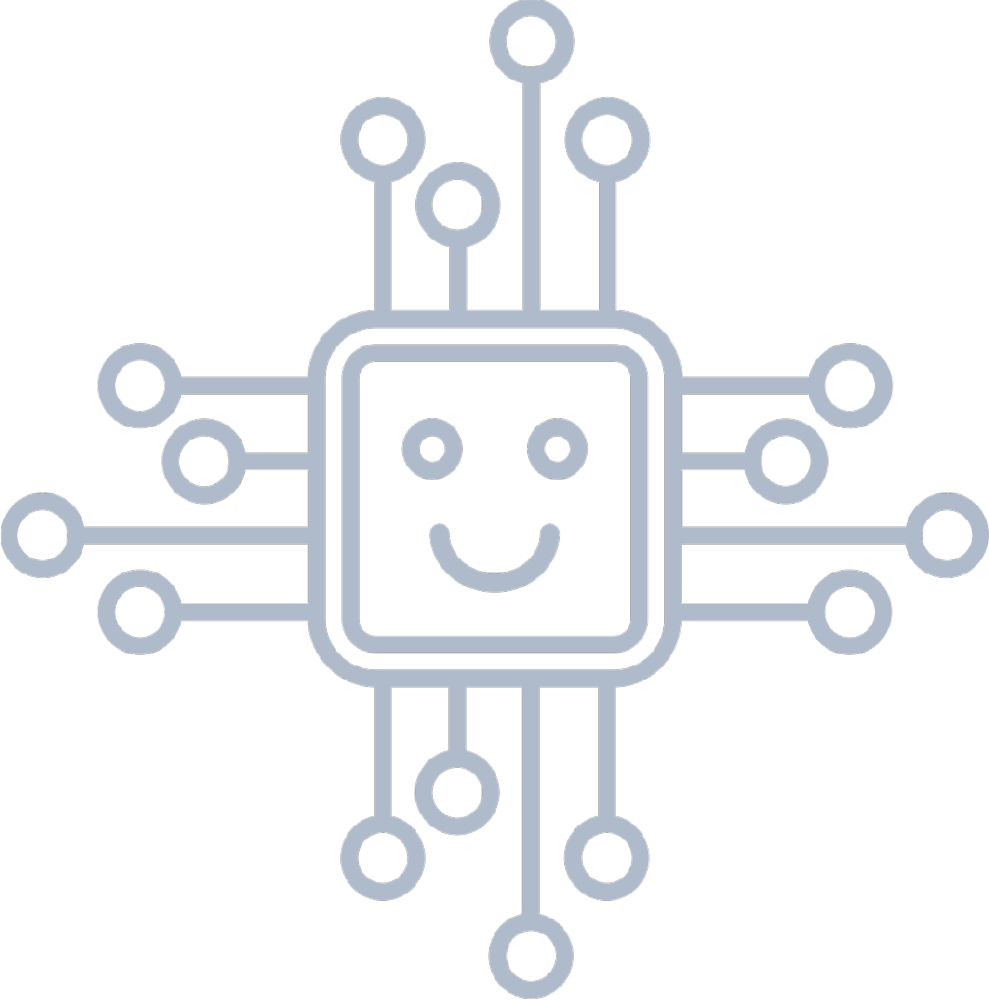
The Benefits for the Business Client
The benefit for the Business Customer is intrinsic in the process of Data Democratization because it allows:
- The definition of clear rules, in terms of rights and obligations, for those who use data
- Usability
- Reducing time and effort in using data
- The increase in the autonomy of the Customer of the Business area, consequently reducing that of IT or, in general, of the structures that manage data from a technical point of view
Technology
Logical Data Warehouse (LDW) Architecture
The Logical Data Warehouse (LDW) provides a unified logical view of source data at a lower cost than traditional data warehousing solutions.
LDW uses technologies such as Data Virtualization to integrate sources and Data Lineage, Data Catalog and Data Quality to manage data processing in an efficient and standard way.
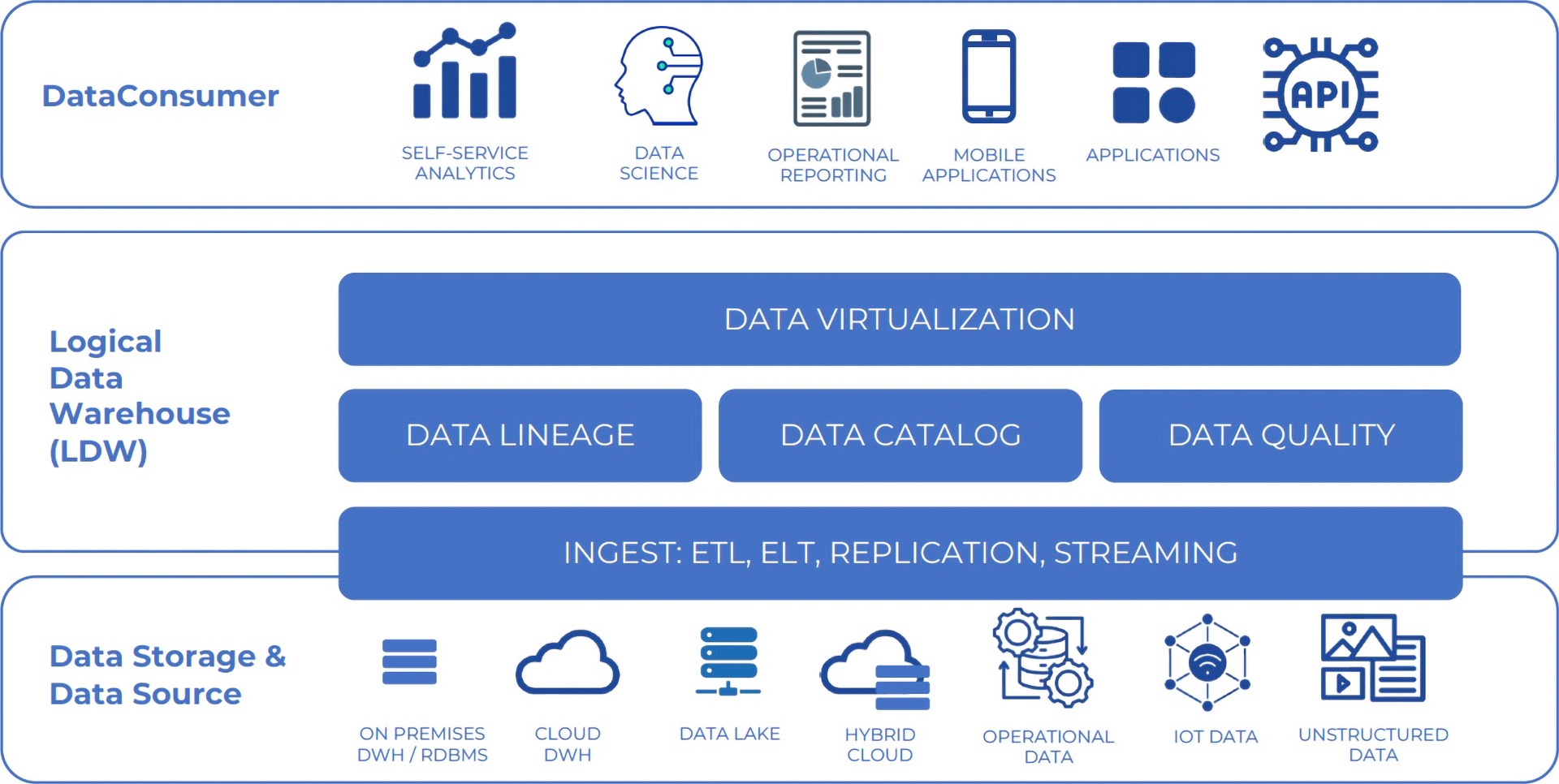
Technology
Data Governance and Product Partnerships
COVERAGE MATRIX
The general objective of our Data Governance services is to guarantee the Customer on the interoperability between technological solutions and the functional coverage of the 4 pillars of Data Governance.
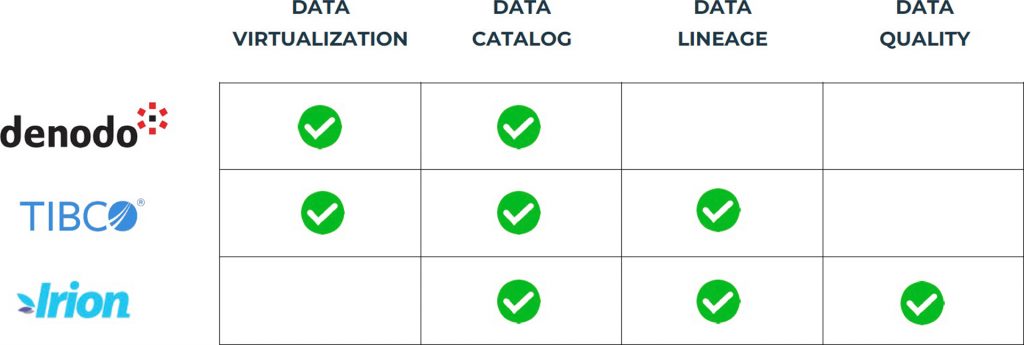
Data Governance Services

Strategic Consulting
Define the most effective data governance strategy to efficiently use data and drive business growth.
Identify the organization-critical data that has the greatest impact on business operations and results.
Guidance to manage risk, reduce costs, and effectively execute business goals.
Definition of policies and procedures for data management (roles, responsibilities, access rules, quality, …)

Training
IT Manager training: definition of policies and procedures for the management of IT systems and technologies, security and information privacy.
Compliance Officer Training: definition of company policies and procedures for the management of regulatory compliance.
Business Analyst Training: understanding business needs and defining data requirements.
Depending on the needs, the training may involve the Chief Data Officer and the Data Privacy Officer.
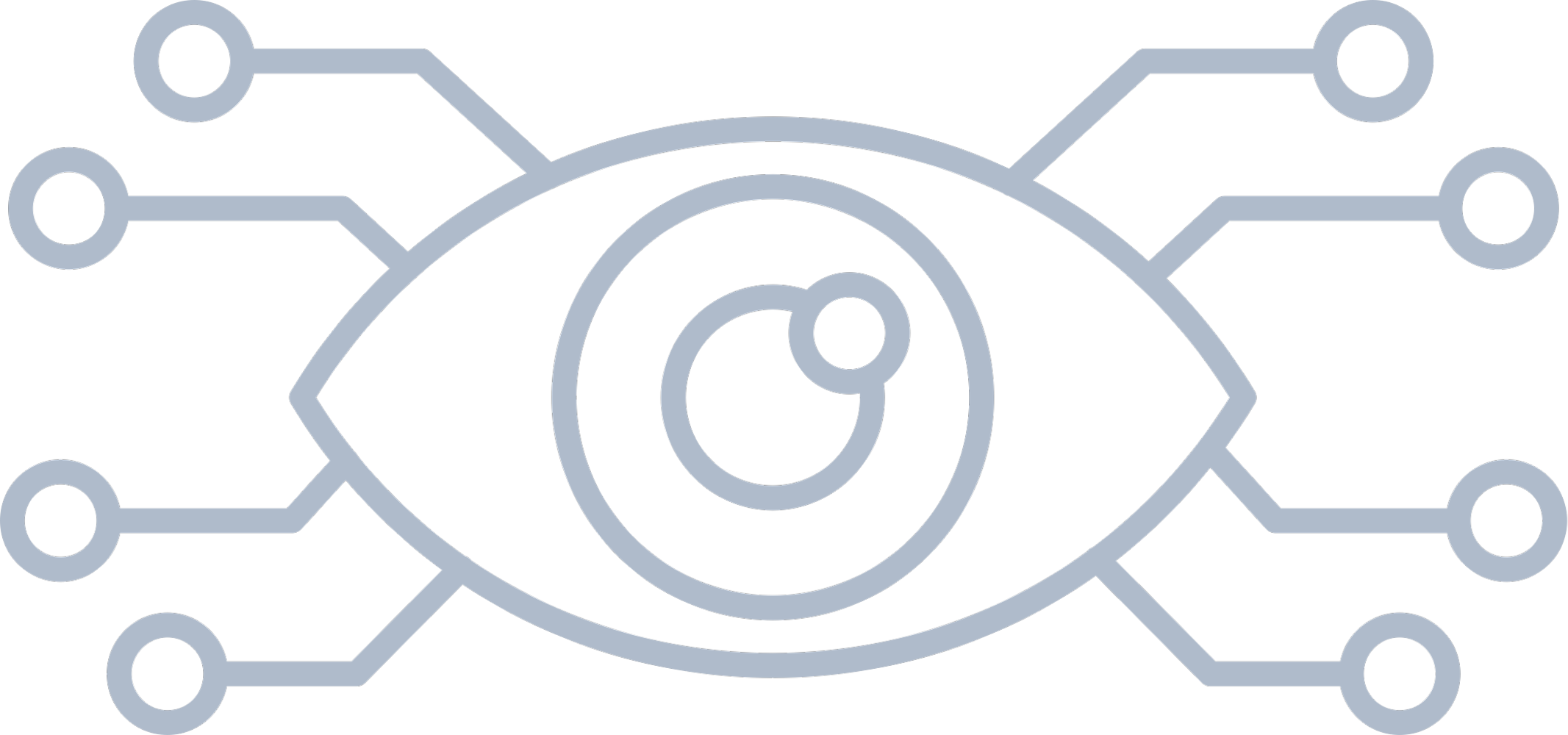
Implementation and Monitoring
Assessment, Set up and Implementation of technological tools to support data governance for:
- Metadata Management
- Data Quality
- Data Virtualization
- Data Catalog
- Data Lineage
Continuous monitoring and improvement: for the continuous verification of the effectiveness of the policies and procedures adopted, in order to identify any critical points and improve data governance activities.
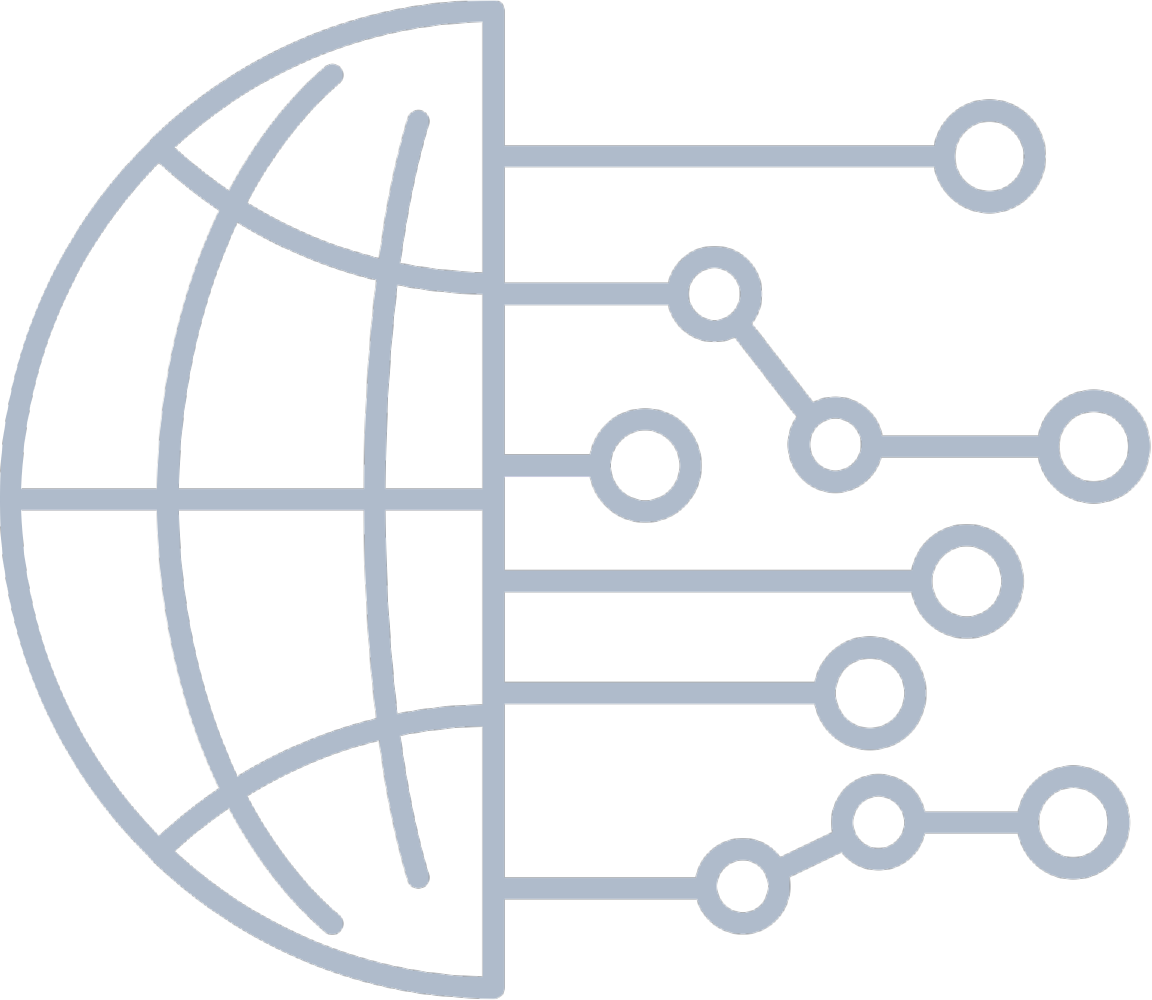
Professional Services
Data Steward to define and monitor data: management policies and procedures; critical data; quality; the semantic layer of virtualization; access to data.
Data Architect & Data Engineer for: design, development and management of Data Architecture also in compliance with regulations.
Data Analyst for: Data analysis and extracting and identifying actionable insights into trends, opportunities, and threats.
Data Scientist to: trigger value-added Machine Learning services on enterprise data.
Next Step
From LDW to Data Fabric
Data Fabric is an emerging solution for data management in complex environments.
- It combines architecture, technology and services to automate much of your data engineering, operations and orchestration.
- It is a unique and unified “logical” solution for Data Management that can be achieved through different technologies and different distribution platforms, especially in the field of Multi-Cloud and Hybrid-Cloud.
- There is no complete solution on the market.
The difficulty for the customer is in choosing which technologies to adopt.
As Humanativa, starting from the experience of LDW and Data Governance, we are able to accompany the Customer in choosing the right technologies, where interoperability between technological solutions is a fundamental aspect.
